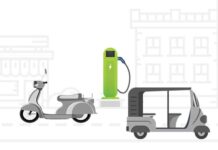The Economic Coordination Committee (ECC) on Wednesday decided to let go of approximately 700 vehicles that were stuck at ports. It also waived recently-imposed taxes that could reach 128% and permitted importers to have their vehicles cleared through paying additional fees.
It will apply to any other goods stuck that arrived in the country before August 18 and were previously permitted to be cleared but were not allowed to leave ports. A Federal Minister for Finance Miftah Ismail virtually presided over the ECC meeting from New York.
“The ECC considered a summary of the Ministry of Commerce on the removal of consignments that were stuck and ordered that consignments of banned items that arrived in Pakistan up to august 18, 2022 could be released with a additional charges,” said a statement from the Ministry of Finance.
When the ban was lifted on 19 August the cabinet issued guidelines to release the goods that are at ports for charges as well as penalties based on the value that is assessed for the goods that range from 5to 100 percent. The cabinet endorsed the imposition of a regulatory duty to deter imports.
The ECC was informed that new rates of regulatory duty as well as additional customs duty became effective as of August 22 and Goods Declarations made on or following August 22, were subjected to revised duty rates.
It was reported by the Ministry of Commerce stated that several businesses approached them complaining about not being getting their goods cleared as there were new regulations on regulatory duties as well as additional customs duties had been included in the WeBOC system. In addition to surcharges, the new rates of duty had been imposed, and they were now facing double penalties.
The ECC determined that the products should be cleared upon settlement of additional surcharges. An official from the Federal Board of Revenue (FBR) told the FBR that about 700 vehicles of different engines were stranded at ports and could be cleared with the help of surcharges if the cabinet agreed with this decision of the ECC.
The tax clearance of vehicles will bring in more than 2 billion rupees to the FBR that is struggling in meeting tax-related targets for the month.
In the last month, the cabinet granted the release of hold-up delivery of vehicles as well as mobile phones and home appliances with the payment of a the full amount of penalty.
Then the government targeted the 49 tariff line of automobiles that carry 10 percent up to 100 percent regulatory duties as well as between 7% and 28 percent more customs duty. These duties were lifted for imports up to August 18.
Old and new automobiles with up to 1,000cc which were previously exempted from regulatory duty have now been slapped with 100 percent duty, which brings total tax on imports to 150%..
Vehicles that were previously being subject to 77% import tax will now be subject to tax rates of 169% since the government has introduced 85percent more of the regulatory duty, and 7percent additional customs duties.
The most expensive cars including sports cars and those with high engine capacity, haven’t been taxed to the maximum extent.
Also Read: MG’s Sister Company to Launch Electric Suzuki Jimny Rival
These types of vehicles used to be in the past subject to total duties of 197% at import stage. The government has added 28% customs duty, and only 10 percent more regulatory duty.
Other choices
The ECC has approved Rs10 billion for the National Disaster Management Authority (NDMA) to purchase emergency supplies for flood victims, with instructions for the Finance Division to immediately release the amount of Rs5 billion, as per the Finance Ministry.
NDMA demanded money to purchase 278,600 tents and 610,000 mosquito nets, 200 food bags and 50 de-watering pumps for a total price in the range of Rs7.1 billion.
It has already received the tents of 29,900, 1.4 millions mosquito nets and 82,400 food bags, 12,000 water jerry cans , at a an estimated price in the region of Rs2.4 billion.
The quantity and quality of the purchases suggest that the NDMA was not prepared to withstand any natural disaster, which indicates the absence of preparedness even minor catastrophes.
The ECC was informed that the NDMA had received Rs8 billion for the logistics and procurement costs of aid items for people affected by the floods. The ECC has already placed the orders to purchase Rs9.5 billion in products.
NDMA is also responsible for transporting products that are donated by international donors. has estimated the cost of logistics to be Rs5.3 billion. This includes ground handling for cargo ships, flights, and trains.
The ECC did not exempt customs duties on the import of raw materials of drugs, such as paracetamol.
It ordered that the Ministry of National Health Services, Regulations and Coordination to take down the summary and to submit new information on paracetamol in order to reduce costs and ensure availability.
The health ministry has proposed that there be a customs duty of 20% and an additional 6% customs duty would be applied to imported active pharmaceutical ingredients for the manufacture of pseudoephedrine, sulphamethoxzoi the salts thereof, as well as ephedrine as well as it’s salts. Penicillins as well as their dericaties, such as cephalexin large quantities of cefixime and ciprofloxacin. Norfloxacin, Ibuprofen and paracetamol could be exempted.




